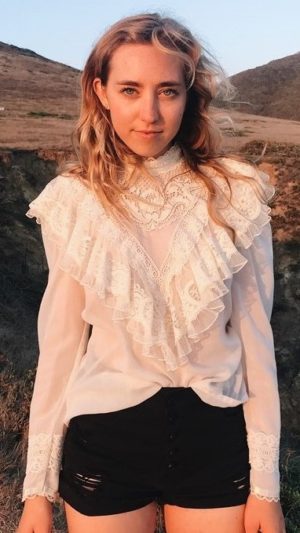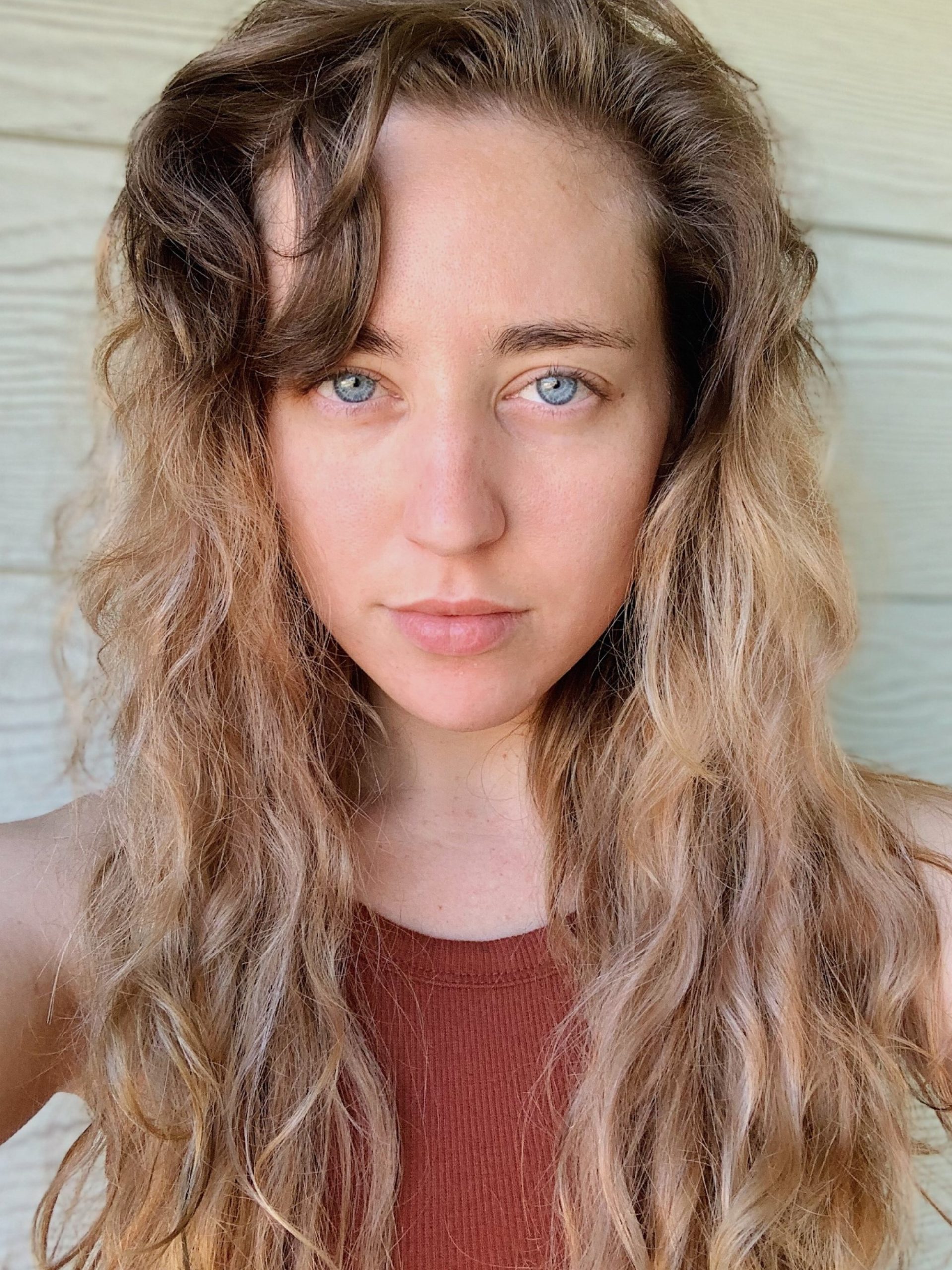The first piece I read by Despy was the short prose ‘Burials’ published last year by The Roadrunner Review. I’ve since become a regular reader of her poetry and flash fiction.
From Ohio, I recently posed a few questions. From California, teacher, poet and editor Despy Boutris — our featured writer for Alphabet Box’s inaugural issue — provided a few answers. We touched upon the craft of writing, sustaining literary journals, paying contributors, passions, teaching poetry, Car Sex, and Greek olives. I hope you find a takeaway or two. Or more, as I did. — Stephen FitzGerald, Alphabet Box editor.
On the craft of writing.
Who or what was your earliest influence that got you writing poetry on a sustained basis?
I started to seriously get into poetry after my first advanced workshop during college. I had a new professor who expressed ambivalence about my work and — because spite fuels me, or maybe just because I’m eager to please — I decided to commit to learning as much as I could and to honing my craft. I started reading two or three poetry collections per day — I’m more “rabid” reader than avid — and started getting better at writing my own poems from there.
Was there a time you stopped writing or took a conscious break from poetry?
This year! Between graduating from my MFA program and moving home to the Bay Area after seven years away, this year has been a huge transition for me. Some people can write great poems with prompts or by just facing the blank page, but I’ve learned over the years that if I try to force inspiration I’ll just end up with a really bad poem. When the poem doesn’t come, I just try to be gentle with myself, knowing that eventually it will. And I try to look at seeing family, gardening, or running errands as a kind of poetry, too: the daily meditations that can become future poems.
How would you compare your poetry today to your earliest? Contrasts, similarities?
I come from a fiction background — that’s what I have more experience writing. A lot of my early poems were more narrative: they told a story. These days, my work is more lyrical.
I think that my obsessions are consistent, though. There was always the lake, the drowning, the orchard, the peach. Always a mouth and always hands. In an early draft of my manuscript, the word “hands” showed up 113 times and, even today, it’s hard to find a poem of mine without them.
Can you predict, vision or guess how your writing may evolve in the near and long terms?
I’ve been really focused on poetry these last four years or so but, going forward, I’m hoping to get back into writing prose, too — both fiction, which I’m very comfortable with writing, and nonfiction, which terrifies me. It’s new to me, so I might be bad at it, and then of course I would have to die. Ha ha.
As for my poetry, I think it’s possible that it becomes a little more experimental in the coming years — at least sometimes. I’ve been reading a lot of formally queer and hybrid texts lately and enjoying them, and they’re influencing the way I approach my own work.
Do you see your writing’s themes or motifs, such as sexuality, fire and water evolving or as fairly common constants? You refer to “obsessions” in your interview with The Forge.
They’re constant. So much of who we are and what we fear is determined in our adolescence — and my adolescence was filled with this constant fear that 1) our house would burn down and 2) that while I was on-duty as a lifeguard, someone would drown, and their death would be on my hands.
I’ve been trying really hard to write beyond these themes and motifs — and I sometimes can — but it’s hard. I think these things will always show up in my work, even if obliquely.
When you see other creative outlets (movies, books, etc.) prefaced with “based on a true story,” do you think poetry and personal essays should be likewise prefaced?
I don’t think so. Everything a writer comes up with stems from their experiences, and desires, and fears, and encounters — and that’s true for fiction, nonfiction, and poetry. For me, what’s frustrating is when people — usually non-poetry writers — assume the events of a poem are entirely factual and accurate and autobiographical. I think that’s a side-effect of Confessionalism. I believe that something can be “true” without being verifiable.
On The West Review.
You’re wrapping up issue 6 of TWR, which you founded and edit. When did you launch?
I had the idea in May 2020, and then the first issue came out that June!
Did you expect it to last this long? Why or why not?
Yeah, I expected it to last — and to keep lasting. It’s a labor of love: something to do to build community and to showcase work I believe in.
It’s ultimately not too time-consuming, which is nice. It’s a fun hobby to have on the side.
Your web address is a .org — is TWR a nonprofit or for-profit? How do you manage to pay all of your contributing poets? And yourself?
It’s not a registered nonprofit — simply because I can’t afford the legal fees — but it operates as one. The website has a store where I sell my old books, and all those profits go directly to the contributors. As you can imagine, selling used books for cheap isn’t particularly lucrative. Even when our contributor’s fund is short, I make sure that contributors are always paid $10 per piece of writing—even if it comes from my own pocket.
It’s such a small payment that it’s symbolic, more than anything, but it’s a way to tell writers, “We value your work, we admire your skill, and we know you deserve compensation for it.”
Is the experience in any way shaping your sense of what’s a sustainable model for literary journals online and off?
Absolutely. It’s shown me how doable paying contributors is — even with the tiniest bit of effort. It’s been fun to chat with other journal editors and offer ideas for fundraising.
The easiest means, I’ve found, are: 1) charging for expedited submissions, 2) charging for editorial feedback, 3) and selling some sort of product; be that a workshop seat, a book, a print journal, etc.
What’s your most effective marketing tool to promote TWR?
Twitter has been a great resource! I love how many people we’ve been able to connect with there.
On teaching.
How long have you been teaching and what college-level courses have you taught?
I started teaching in 2018 and have taught Freshman Composition, an introductory poetry and fiction workshop, and a 300-level poetry workshop.
If any, what specific takeaways are you getting from working with students? What takeaways do you think they’re getting from you?
The value of grace, compassion, and humility. I try to be for students the kind of professor I always wanted: one who recognizes how much students have to deal with, who shows them respect, and who realizes that I have as much to learn from them as they do from me.
Teaching poetry and leading workshops for undergraduates is also really fun because they’re enthusiastic about it. Usually, poetry — at least contemporary and free-verse poetry — is pretty new to these students, and they’re excited about creating and sharing with such a close-knit community. They don’t yet know all the elements of craft, and they’re not yet jaded by the publishing world. They are, and their work is, really earnest.
On the poem Car Sex.
Most writers write for an audience, or for themselves as self-expression or catharsis. Poets and songwriters often write for another individual, such as in a torch song to a lover or a tribute to a friend. Who’s your audience for Car Sex?
I try not to think too much about audience — who they are, how they’ll interpret a poem — because then the expectations of others can become stifling.
I think of pieces of writing as bridges, extended out toward anyone who wants to cross them. It always feels like more than self-expression or catharsis for me. More a desire to communicate.
On Miscellany.
 Do you have a hobby or a passion away from writing and reading?
Do you have a hobby or a passion away from writing and reading?
Yes! I love any kind of art, really. I was really into drawing, painting, and graphic design. Lately, I’ve been designing little zines and pamphlets, which is really fun. I like that they combine elements of writing and visual art, and that the finished product is something tangible you can hold in your hand.
How do you view the writing community on Twitter?
It seems like a great resource for people. A way to meet writers, to encounter new texts, and to learn about available opportunities. I’ve made so many friends and learned about so many journals through Twitter.
Are you on other social platforms?
I’m everywhere!
What are you reading for pleasure?
I’ve been reading a lot of hybrid and experimental texts lately: writers like Claudia Rankine, emji spero, Lisa Lubasch, Kate Greenstreet, and Jamie Hood. The last poetry collection I really loved was Embouchure by Emilia Phillips. Also The Thicket by Kasey Jueds, which is set to come out in November.
Have you ever been to Cleveland, Ohio?
Not yet, but I’m desperate to! Being from California — which is so big that I so rarely travel elsewhere — Ohio wasn’t even on my radar until recently. It seems like there’s such a great writing community there.
What living and deceased people inspire you the most?
Oh, I always look to Audre Lorde, John Keats, Langston Hughes and Anne Sexton, among others. Mostly, I’m just inspired by my friends.
Favorite ingredients on your pizza?
Onions, artichoke hearts, and Greek olives.
Become an Alphabet Box Patron.
Tips Help AB Publish and Pay Writers!
Log in to manage your payments
